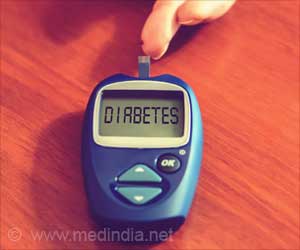Intravitreous anti-VEGF therapy emerges as a potential treatment for diabetic retinopathy as it reduces its risks and increases the chance of improvement.

‘Proliferative diabetic retinopathy is a leading cause of vision loss in patients with diabetes mellitus and panretinal photocoagulation has been the standard treatment for more than 40 years.’





Researchers evaluated the efficacy of intravitreous ranibizumab compared with PRP for visual acuity. The anti- VEGF therapy is emerging as a newer treatment for DME. They followed more than 300 patients with proliferative diabetic retinopathy. Half of the patients were treated using laser and another half was given intravitreous ranibizumab and were tested every 4 weeks.They followed them for 5 years and the primary outcome was after 2 years. The results were found to be effective in the ranibizumab group than the PRP group. They found that there was less visual field loss and less chances of DME development or Vitrectomy.
“When used as treatment of DME, intravitreous anti-VEGF agents reduce the risk of diabetic retinopathy worsening and increase the chance of improvement, making these agents a potentially viable PDR treatment," said the researchers.
Though the researchers analyzed the efficacy between the intravitreous anti-VEGF agents and PRP, the cost- effectiveness was a matter of concern. While the anti-VEGF drug may give clinicians another option in the treatment of patients with proliferative diabetic retinopathy, its high-cost requiring a minimum of 6 monthly injection costing around $2,000 each and the need for very close patient follow-up may limit its use.
Reference: Adam R. Glassman, MS, Jaeb Center for Health Research, “Panretinal Photocoagulation vs Intravitreous Ranibizumab for Proliferative Diabetic Retinopathy A Randomized Clinical Trial,” JAMA, Published online November 13, 2015. doi:10.1001/jama.2015.15217
Advertisement















